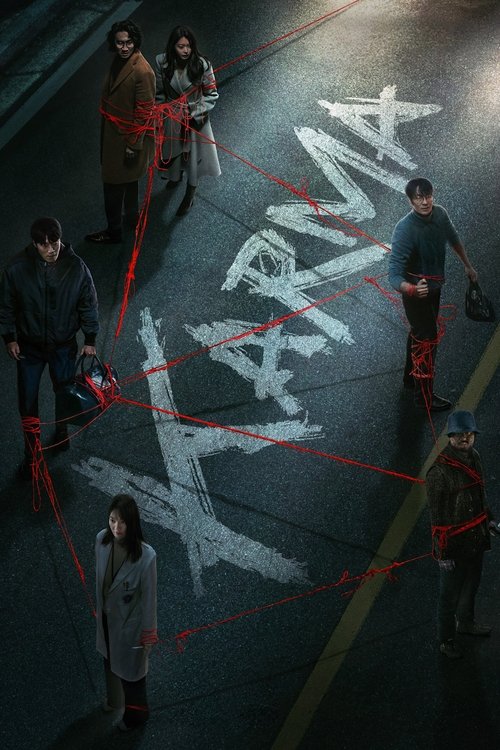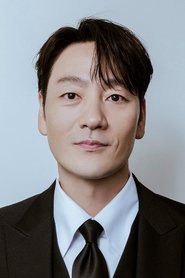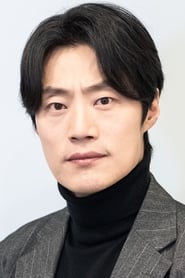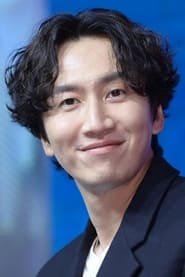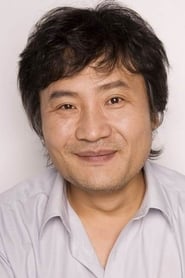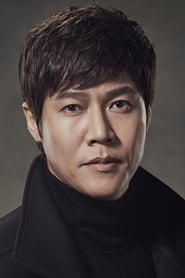Ask Your Own Question
What is the plot?
The story begins with Park Jae-yeong, a man drowning in debt to loan sharks, desperate for a way out. He hatches a plan to kill his own father, Park Dong-sik, to claim a 500 million won life insurance policy. Jae-yeong identifies Jang Gil-ryong, a Korean-Chinese man recently fired from Jae-yeong's workplace and a member of the Korean-Chinese mafia, as the hitman for hire. Jae-yeong tracks Gil-ryong down at a car junkyard where he lives and hires him to kill his father, instructing him to make it look like a hit-and-run accident by running Dong-sik over as he leaves church, choosing an alley without CCTV coverage.
Gil-ryong murders Dong-sik but cannot stage the hit-and-run as planned. Instead, he disposes of the body elsewhere. Meanwhile, traditional medicine doctor Han Sang-hun and his girlfriend Lee Yu-jeong are driving home after a romantic getaway when Sang-hun accidentally hits Dong-sik's body with his car. Believing he has killed Dong-sik, Sang-hun almost kills Kim Beom-jun, a nearby witness. Sang-hun coerces Beom-jun into helping him bury Dong-sik's body in the mountainside and pays him for his silence.
Dong-sik's body is later found by a hiker, but Jae-yeong fails to get the insurance payout because the death is being investigated as a murder due to the sloppy work of Gil-ryong and Kim Beom-jun. Gil-ryong begins pressuring Jae-yeong for his cut of the money, creating a scene while Jae-yeong is speaking to police investigators. During the commotion, Gil-ryong kills a police officer and decides he must flee the country to avoid capture. He commands Jae-yeong to pay him immediately and starts packing a bug-out bag.
Sang-hun reviews his car's dashcam footage and discovers that Beom-jun staged the accident, framing him for the murder. Enraged, Sang-hun contacts his underworld associate Lee Yu-jeong, who agrees to broker a meeting between him and Kim Beom-jun. Unbeknownst to Sang-hun, Yu-jeong is actually working with Kim. At the meeting, the criminals gang up on Sang-hun and attack him. In the ensuing scuffle, both Lee Yu-jeong and Sang-hun are severely injured. Kim Beom-jun escapes as Sang-hun and Yu-jeong take their final breaths.
Meanwhile, Park Jae-yeong receives news of his father's death and feigns sadness for the authorities. However, the investigation into the murder complicates his plans to claim the insurance money. Gil-ryong's violent behavior escalates, culminating in the killing of a police officer, forcing him to flee. Jae-yeong is left under pressure to pay Gil-ryong and deal with the unraveling situation.
As the police investigate, Chief Park hears Beom-jun's hospital testimony but realizes it does not match the crime scene, indicating Jae-yeong is not the culprit. Beom-jun, whose real name is revealed to be different, prepares to flee but finds a brochure with Ju-yeon's face, triggering a flashback where he once advised Yu-jeong to manipulate men using women. Realizing what has happened to Ju-yeon, Beom-jun laughs. The police break into his home but find him gone. Later, Beom-jun is kidnapped by loan shark's men. Ju-yeon calls Yoon to console him, admitting she once dreamed of killing Jae-yeong but found no peace in it. Yoon is then picked up by a Benz and prepares for a final confrontation with the loan shark, who arrives to give him a farewell gift, signaling Yoon's last day.
The series ends with the fates of the six main characters intertwined by their crimes and betrayals, leading to the deaths of five people trying to avoid facing the consequences of their actions, while one character attains a hard-won sense of peace.
What is the ending?
The TV show Karma (2025) ends with the death of five main characters involved in a murder cover-up, leaving only Lee Ju-yeon alive. Ju-yeon finds closure as all those who harmed her or were complicit in her father's death meet their demise, allowing her to finally move on with her life.
Expanded narrative of the ending, scene by scene:
The final episode opens mirroring the series' first scene, showing Beom-jun arriving at the hospital as a burn victim. It is revealed he is not truly Park Jae-yeong, but has assumed his identity.
Earlier, Jae-yeong had planned to kill Gil-ryong, but Gil-ryong overpowers him and brings the unconscious Jae-yeong to Beom-jun, who is hiding in a warehouse and evading police. Beom-jun, noticing his resemblance to Jae-yeong, decides to steal Jae-yeong's identity. He kills both Gil-ryong and Jae-yeong, then sets the warehouse on fire. Tragically, Beom-jun becomes trapped in the fire he started.
Meanwhile, the police investigate inconsistencies in testimonies and crime scenes, realizing Jae-yeong is not the true culprit. Beom-jun, aware of the police closing in, prepares to flee but is kidnapped by loan shark's men. Ju-yeon calls Yoon to console him, admitting her past desire for revenge but urging him not to blame himself.
Yoon is picked up by the loan shark and given a "farewell gift," indicating his last day alive.
The deaths of Gil-ryong, Jae-yeong, Beom-jun, and others involved in the murder and cover-up complete the cycle of retribution. Ju-yeon, the sole survivor, wakes up after her hospital shift, smiling as she leaves, symbolizing her emotional closure and ability to move forward.
Fates of main characters at the end:
- Lee Ju-yeon: Survives, finds closure, and leaves the hospital with a hopeful smile.
- Beom-jun: Kills Jae-yeong and Gil-ryong, sets fire, but dies trapped in the blaze.
- Jae-yeong: Overpowered and killed by Beom-jun.
- Gil-ryong: Killed by Beom-jun after overpowering Jae-yeong.
- Yoon: Taken by loan shark, implied to be killed.
- Others involved in the murder and cover-up: All die, fulfilling the show's theme of karmic justice.
The ending ties up all major plotlines without cliffhangers, emphasizing that those who caused harm face consequences, while Ju-yeon's survival represents the possibility of healing after trauma.
Is there a post-credit scene?
Yes, the TV show Karma (2025) has a post-credit scene. In this scene, the character known as Jae-Yeong (who is actually Beom-Jun impersonating the real Jae-Yeong) receives a call from the insurance office informing him that the money from his father's death has not been credited to him but instead to the church his father used to attend. When Jae-Yeong goes to the church to confront this, a nun plays a recording from his father, who anticipated Jae-Yeong's reaction and instructed the church to ignore him. The father wanted Jae-Yeong to repent for his misdeeds. This scene underscores the theme of karmic justice, as the real Jae-Yeong had his father killed for money but ended up dead himself without receiving any inheritance, which is portrayed as his deserved fate.
What is the role and background of Jang Gil-ryong in Karma?
Jang Gil-ryong, played by Kim Sung-kyun, is a Korean-Chinese man recently fired from the Debtor's workplace and a member of the Korean-Chinese mafia. He is hired by Park Jae-yeong (the Debtor) to kill Jae-yeong's father, Park Dong-sik, in a staged hit-and-run to collect life insurance money. Gil-ryong lives in a car junkyard and is desperate for money to send to his child. He ultimately commits the murder but complicates the plan by disposing of the body elsewhere instead of staging the accident as instructed.
How are the six main characters in Karma connected through the central crime?
The six main characters are connected through the murder of Park Dong-sik. Park Jae-yeong hires Jang Gil-ryong to kill his father for insurance money. After the murder, Han Sang-hun and his girlfriend Lee Yu-jeong accidentally hit Dong-sik's body with their car. Sang-hun enlists Kim Beom-jun (the Witness) to help bury the body. Yu-jeong and Beom-jun conspire to kidnap Sang-hun, leading to a series of murders. The private detective Hwang Cheol-mok, hired by Sang-hun's wife, captures evidence of these crimes, triggering a manhunt for Beom-jun. These intertwined events link all six characters in a web of crime and betrayal.
What happens to the character Kim Beom-jun, the Witness, by the end of the series?
Kim Beom-jun, known as the Witness, is introduced after witnessing a hit-and-run by Han Sang-hun. He is coerced into silence by Sang-hun but later conspires with Lee Yu-jeong to run a con involving the dead body. In the climax, after Yu-jeong is killed by Sang-hun, Beom-jun kills Sang-hun. The murders are documented by a private detective, leading to a manhunt for Beom-jun. Ultimately, the Witness dies in the season finale, closing his arc in the story.
What is the significance of the insurance policy in the plot of Karma?
The life insurance policy on Park Dong-sik is the catalyst for the central crime. Park Jae-yeong, burdened by debt, plans to kill his father to collect the 500 million won insurance payout. The murder is intended to look like a hit-and-run to ensure the insurance company pays out. However, complications arise when the body is discovered and the investigation delays the payout, intensifying the conflicts among the characters and driving the plot's tension.
How does the relationship between Han Sang-hun and Lee Yu-jeong evolve throughout the series?
Han Sang-hun and Lee Yu-jeong are a couple who become entangled in the aftermath of the murder. After Sang-hun accidentally hits Dong-sik's body with his car, he involves Kim Beom-jun to help cover up the incident. It is later revealed that Yu-jeong is working with Beom-jun in a con. Their relationship deteriorates as Yu-jeong kidnaps Sang-hun, leading to a violent confrontation where Sang-hun kills Yu-jeong before being killed himself by Beom-jun. Their relationship thus shifts from romantic to adversarial, deeply entwined with the series' criminal events.
Is this family friendly?
The 2025 TV series "Karma" is not fully family friendly and contains some content that may be upsetting or inappropriate for children and sensitive viewers.
Potentially objectionable or upsetting aspects include:
- Violence and blood: The series involves intense scenes including violence, some blood, and a dark, suspenseful atmosphere. There are moments of scheming and criminal acts that contribute to a tense mood.
- Mild sexual content: There are some sexual jokes and references, but no explicit nudity.
- Moderate profanity: Words like "fuck," "bitch," "hell," and "shit" are occasionally used.
- Frightening or disturbing scenes: Some scenes involve characters pretending to die or falling dramatically, which might be disturbing to some viewers.
- Dark themes: The plot involves morally complex and intense situations such as murder plots and consequences of past actions, which can be emotionally heavy.
There is no explicit nudity or heavy drug use, but the overall tone is serious, suspenseful, and sometimes dark, making it more suitable for mature audiences rather than children or very sensitive viewers.

